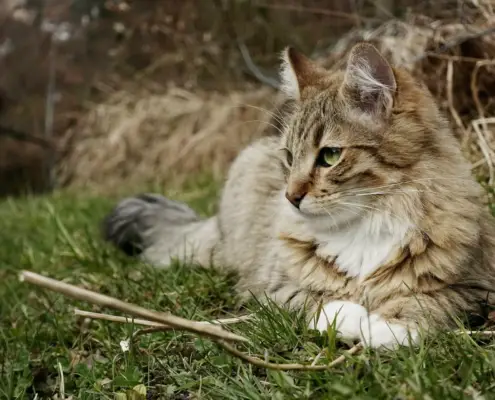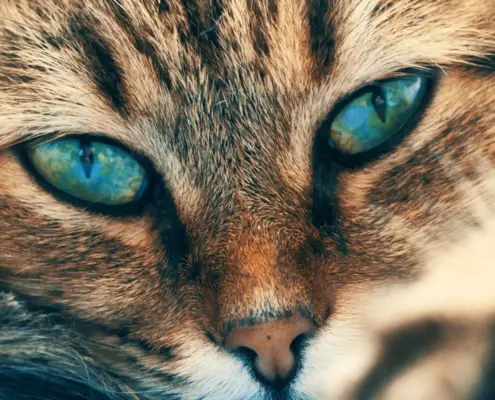
Cats have long been known for their mysterious and independent nature. While they may not always show their emotions in the same way as humans do, it is widely accepted that cats do experience a range of emotions. From happiness to fear, cats have the capacity to feel and express their feelings in their own unique way. But what about heartbreak? Can a cat truly experience such a complex emotion?
Do Cats Experience Heartbreak?
Although cats may not experience heartbreak in the same way humans do, they are capable of feeling a deep sense of loss and sadness. Cats form strong attachments to their human caregivers, as well as to other animals in their lives. When a significant bond is broken, such as through the loss of a loved one or a sudden change in environment, cats can exhibit signs of emotional distress that are similar to what humans might experience during a heartbreak.
Signs of Emotional Distress in Cats
Just like humans, cats can display a variety of signs when they are experiencing emotional distress. These signs may include changes in appetite and sleep patterns, increased aggression or withdrawal, excessive grooming or lack of grooming, and even physical symptoms like vomiting or diarrhea. It is important for cat owners to be aware of these signs and to seek help if they suspect their cat is suffering emotionally.
Factors that Can Cause Emotional Distress in Cats
There are several factors that can cause emotional distress in cats. The loss of a beloved companion, whether human or animal, can be particularly traumatic for a cat. Cats are also highly sensitive to changes in their environment, such as moving to a new home or the addition of a new pet. Other factors that can contribute to emotional distress in cats include neglect, abuse, or even the absence of social interaction and mental stimulation.
How to Help a Cat Dealing with Emotional Distress
If you suspect that your cat is suffering from emotional distress, it is important to provide them with the support and care they need. First and foremost, make sure that your cat has a safe and secure environment where they feel comfortable. Provide plenty of opportunities for play and mental stimulation, as this can help distract them from their emotional pain. Additionally, try to maintain a consistent routine and provide a predictable schedule for feeding and attention. If your cat’s distress is severe or persistent, it may be necessary to consult with a veterinarian or animal behaviorist for further guidance.
Can Cats Bond with Humans and Experience Heartbreak?
Cats are capable of forming deep bonds with their human caregivers. They rely on their owners for food, shelter, and affection, and often seek comfort and companionship from them. When a cat loses a beloved human companion, whether through death or separation, they can experience a profound sense of loss and grief. This can manifest in various ways, such as clinginess, increased vocalization, or withdrawal. While cats may not experience heartbreak in the same way humans do, it is clear that they can feel a deep emotional connection and suffer when that connection is severed.
The Importance of Socialization for Cats’ Emotional Well-being
Socialization plays a crucial role in a cat’s emotional well-being. Cats that are well-socialized from a young age are more likely to feel secure and confident in their interactions with both humans and other animals. They are also better equipped to handle changes and transitions without experiencing significant emotional distress. It is important for cat owners to provide opportunities for socialization, such as introducing their cat to new people and animals in a positive and controlled manner.
Other Emotions Cats Can Experience
In addition to potential heartbreak, cats can experience a range of other emotions. They can feel joy and contentment when their needs are met, curiosity when exploring new environments, fear when faced with unfamiliar situations, and even jealousy or resentment towards other pets or individuals who compete for their caregiver’s attention. By understanding and acknowledging these emotions, cat owners can better empathize with their feline companions and provide the support they need.
Seeking Professional Help for Emotionally Distressed Cats
If you have tried various strategies to help your cat cope with emotional distress and have not seen any improvement, it may be time to seek professional help. A veterinarian or animal behaviorist can assess your cat’s specific needs and provide guidance on how to address their emotional well-being. They may recommend behavior modification techniques, medication, or other interventions based on your cat’s individual circumstances.
Conclusion
While cats may not experience heartbreak in the same way humans do, they are capable of feeling a deep sense of loss and sadness. As responsible cat owners, it is important for us to recognize and address our feline companions’ emotional well-being. By providing a safe and nurturing environment, socialization opportunities, and seeking professional help when needed, we can help our cats navigate their emotional world with love and understanding. Remember, a happy and emotionally healthy cat is a cherished member of the family.
If you enjoyed my article, I would appreciate you sharing it with your network.

Sima Ndlebe
Sima writes for CatBuzz. He is interested in Cats, Health and Fitness, and Entrepreneurship.
Published: 13 November 2023




